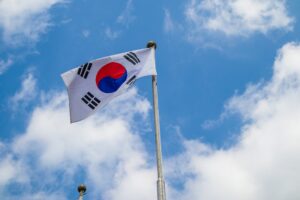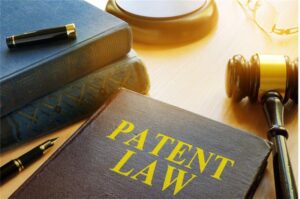WHAT WILL HAPPEN AFTER THE PATENT IS GRANTED AND IS NOT IMPLEMENTED?
In accordance with the amendment of article 20 of Law No. 13 of 2016 on Patents in Omnibus Law on Job creation No. 11 of 2020, in paragraph (1) that patents must be implemented in Indonesia, and in paragraph (2) the implementation of patents as referred to in paragraph (1) shall be as follows:
- Implementation of product-patents which includes making, importing or licensing products that are patented;
- Implementation of process-patents which includes making, licensing or importing the products resulting from a patented process; or
- Implementation of method, system and usage-patents which includes making, importing, or licensing the products resulting from patented methods, systems and usages.
Do You know, what will happen if a patent that has been granted is not implemented by the patent owner?
Patents that have been granted but have not implemented in accordance with Article 20 of Law No. 13 of 2016 on Patents, so the patent can be implemented by a third party. Either the process is directly by means of an agreement between the patent holder and a third party, or by submitting an official application to the Indonesian Patent Office. What is referred to as a Compulsory Patent License.
The procedure for the implementation of the Compulsory Patent License itself is regulated by the government through the Regulation of Minister of Law and Human Rights No. 30 of 2019 concerning Procedures for Granting Compulsory Patent Licenses. From this ministerial regulation, it is hoped that both patent holders, license holders and the public can enjoy the benefits of the patent application. In accordance with Article 4 in the Regulation of the Minister of Law and Human Rights no. 30 of 2019 where the granting of a compulsory patent license is granted based on the principle of benefit.
In accordance with Article 8 of the Regulation of the Minister of Law and Human Rights no. 30 of 2019 where an application on Licenses obtained voluntarily or based on the agreement of both parties are not specifically regulated. Because a license that results from an agreement, will directly bind between the two. Meanwhile the Regulation of Minister of Law and Human Rights No. 30 of 2019, regulates a procedure for applying for a Compulsory Patent License in which the applicant does not obtain a consensus agreement with the patent holder.
In accordance with Article 8 of the Regulation of the Minister of Law and Human Rights no. 30 of 2019 where an application for a patent license can be submitted to the minister through the Indonesian Patent Office whit the reasons of a) the patent holder does not carry out the implementation of patents as stated in the amendment of article 20 of Law no. 13 of 2016 on Patents in Omnibus Law on Job creation No. 11 of 2020,, the obligation to make a product or use a process in Indonesia within 36 (thirty six) months after the patent is granted, b) the patent has been granted and implemented by the patent holder or licensee in a form and in a way that is detrimental to the public interest; or c) patents resulting from the development of previously granted patents but they cannot be exercised without using the patents of other parties which are still under protection.
A Compulsory Patent License can be granted based on an application filed by an individual, a patent holder, or an agency.
Some of the things that must be considered in the application for a Compulsory License include, among others, the Applicant or the attorney must submit the evidence that he/she has the full ability to implement the patent as soon as possible, and by having previously taken steps within a period of 12 (twelve) months to obtain a license from patent holder with a reasonable agreement but it is unsuccessful. And in accordance with article 17, that the application for a compulsory license is subject to a fee in accordance with the provisions of the statutory regulations on Non-Tax State Revenue in effect at the Ministry of Law and Human Rights of the Republic of Indonesia.
So this ministerial regulation does regulate an application for a Compulsory Patent License that has not previously reached an agreement with the patent holder properly, but a Compulsory Patent License cannot be easily obtained simply because the licensee cannot obtain a voluntary agreement with the patent holder to use his patent. There are many processes that an applicant must go through for a patent that has been granted to be granted by the Minister for his application for a Compulsory Patent License. One of them is a substantial examination carried out by experts who are formed independently by the Minister.
If an application for a Compulsory License is granted by the Minister, it is in accordance with Article 27 paragraph 1 of Regulation of the Minister of Law and Human Rights No. 30 of 2019, the recipient of a compulsory license must pay compensation to the patent holder. This is also a form of protection provided by the government for patent holders. Because after all the patent holders are the most entitled party to the patents that have been granted.
However, patent holders themselves are given the opportunity and discretion to exercise their patents. The government in the same regulation provides an opportunity to delay the implementation of patents that have been granted, this is in accordance with Article 40 of Regulation of the Minister of Law and Human Rights No. 30 of 2019.
Patent holders can apply for a postponement with a delay period of 5 years to the Minister through their attorney.
That’s what will happens if a patent is not immediately implemented in Indonesia. The government regulates that both patent holders and third parties who wish to use their patents can find the best solution.
Source:
*) Regulation of the Minister of Law & Human Rights No. 30. Year 2019
*) regulations.bpk.go.id/Home/Details/133142/permenkumham-no-30-year-2019





